This post may contain affiliate links that at no additional cost to you, I may earn a small commission.
You can find Antipodes cruelty-free products at antipodesnature.com and Amazon.
Antipodes is Cruelty-Free
Antipodes has confirmed they do not test their products or ingredients on animals or ask others to test on their behalf. Their suppliers also do not test on animals, nor do they allow their products to be tested on animals when required by law. And finally, their products are not sold in stores in mainland China or any other country that may require animal testing.
By our standards, we would consider Antipodes to be Cruelty-Free.
Below is a screenshot of Antipodes’ official animal testing statement:
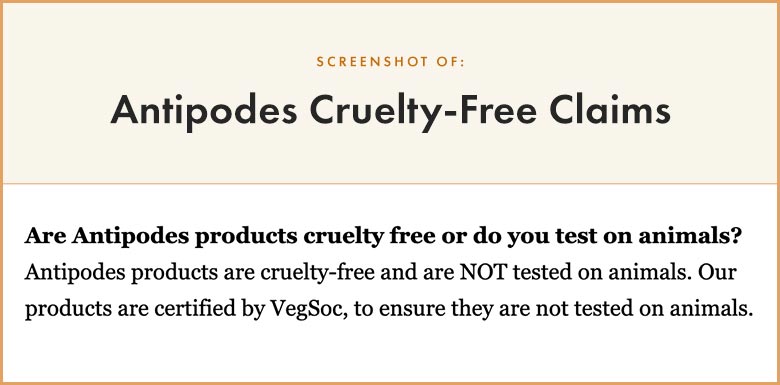
In addition, I emailed Antipodes to ask them for more information about their animal testing policy. The following is a snippet of the response I received from them:
“We can confirm that Antipodes product range is free from animal testing. All Antipodes products are Vegetarian Society Approved. We never test our skincare on animals, and there’s no cross-contamination during the production process. All our products are free from any animal ingredient resulting from
Antipodes® is thrilled to announce that its scientifically validated and certified organic premium natural skincare and makeup has been awarded official vegan status by the Vegetarian Society of the United Kingdom, the oldest and most respected vegetarian
What About China’s Animal Testing Laws?
Antipodes has confirmed they only sell online and not in retail stores in mainland China; therefore, they are not required to test on animals.
“We don’t sell in stores in mainland China as you must test on animals (which we would never do), therefore our only way around this is to sell online via Chinese platforms which sells cross border parcel to parcel.”
As of May 1, 2021, some imported ordinary cosmetics can be exempt from animal testing under certain conditions. However, for the most part, animal testing is still legally required for most imported cosmetics in 2022.
Cruelty-Free Policies
Note that there is no legal definition for the label ‘Cruelty-Free.‘ It can mean different things to different people. But Cruelty-Free is generally used to imply no animal testing. More specifically, the ingredients, formulation, or finished product are not tested on animals at any stage of product development.
At ethical elephant, we always assess a company’s cruelty-free policy using our Cruelty-Free Checklist. This ensures no animal testing was performed by the brand itself, its suppliers, and by any third parties.
Also, note that Cruelty-Free and Vegan don’t always mean the same thing.
Antipodes is Not 100% Vegan
‘Vegan’ in cosmetics can refer to an entire brand that is 100% Vegan or a specific product is vegan.
In the case of Antipodes, not all of their products are vegan. But they have some products that are suitable for vegans.
The following is a screenshot of what’s currently stated on Antipodes’ official website about its vegan products:
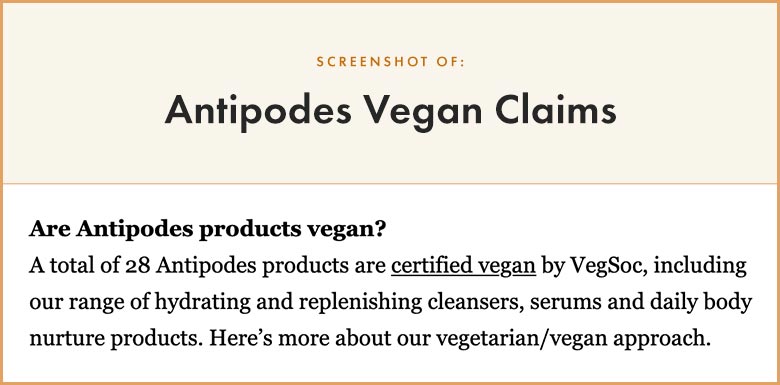
How to know which of Antipodes products are vegan?
Antipodes clearly marks all of its vegan products on its website. See below for an example.
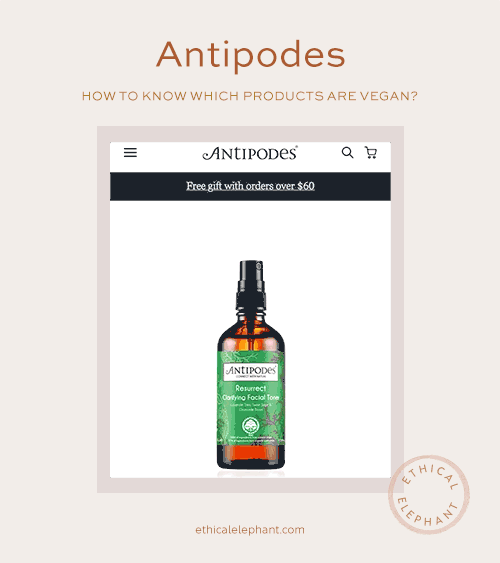
Vegan Policies
Similar to ‘Cruelty-Free,’ there is no standard or legal definition for the label ‘Vegan.’ But it’s usually used in the context to describe something that doesn’t contain any animal-derived ingredients or animal by-products.
Some common animal products used in cosmetics include carmine, lanolin, snail mucus, beeswax, honey, pearl or silk-derived ingredients, animal-based glycerin, keratin, and squalene.
There are plant-based and synthetic alternatives to animal-derived ingredients. But it’s sometimes difficult to know with certainty whether a product is vegan just by reading the ingredient list.
So it’s best to ask the company and manufacturers to ensure the ingredients they’ve chosen to use were from non-animal sources.
Ethical Mica Mining Policy
Mica is a mineral that’s used in cosmetics to add a shimmery effect. But the mining of natural mica has been linked to child labor and human rights violations.
Unless the company discloses its mica mining policy, we have no way of knowing whether its mica is ethically sourced without child or forced labor.
So I asked Antipodes if their mica is ethically sourced without the use of child labor and they responded by stating,
“The mica we use is sourced from the USA, is ethical without the use of child labour.”






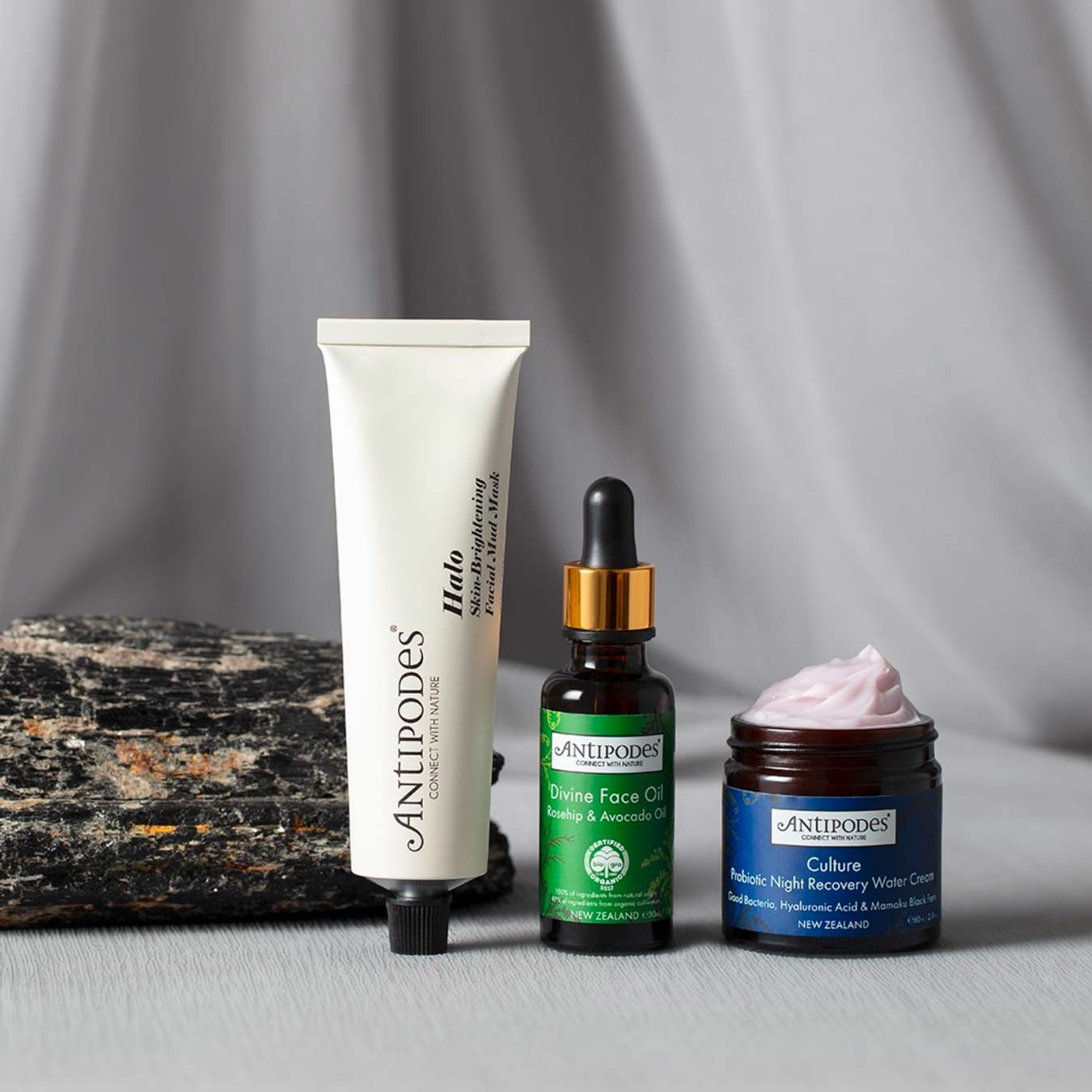
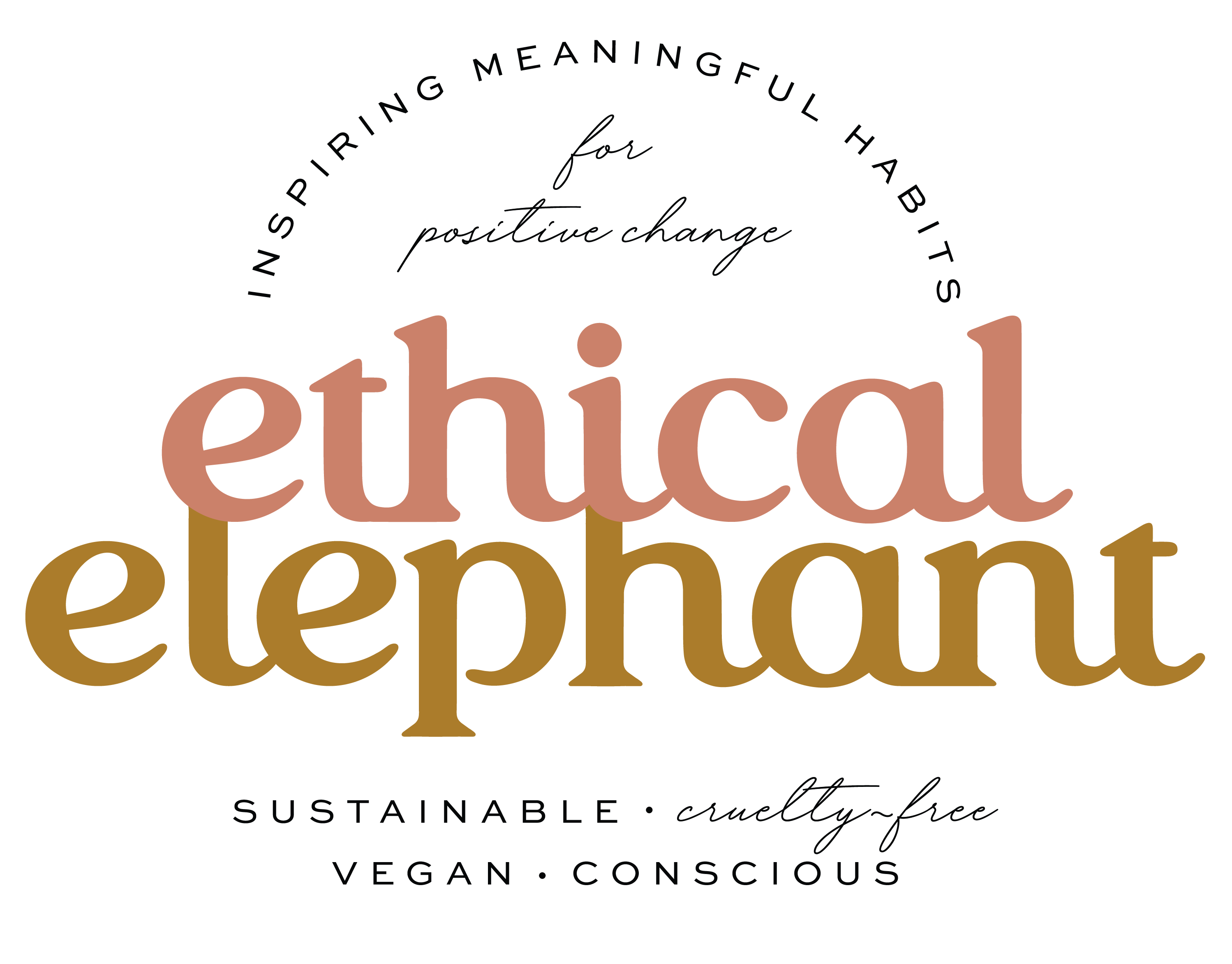
1 thought on “Antipodes”
Interesting as I just came across their hotel range and it says ‘Made in China’. Hmmmm.